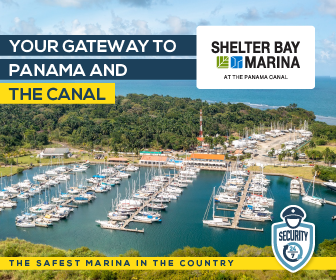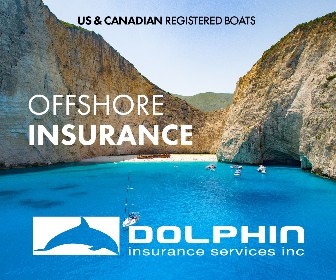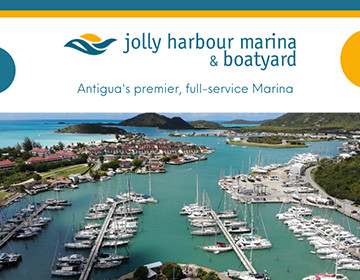Caribbean Security for Cruisers: Everyone’s Concern, Everyone’s Responsibility
This report by the Caribbean Safety and Security Net (CSSN), helping cruisers enjoy safer cruising in the Caribbean
Published 11 years ago, updated 5 years ago
Bad Things Really Happen:
Recently, several serious security events against yachts have occurred in the Caribbean, including Tobago and in Saint Vincent and the Grenadines. These unfortunate and scary events have brought security issues to the front of most cruisers minds. When these events occur, we all want to know exactly what happened, how/when/where and why it happened, all the while hoping that we can prevent the same from happening to us. Getting timely, accurate information about incidents is the critical first step in the process and makes it possible to assess and evaluate (and perhaps change) our own behavior and preparedness. This is not a new phenomenon.
Manage Risk:
The Caribbean Safety and Security Net (CSSN) was started by dedicated, volunteer cruisers (back in 1996!), as a daily HF voice net to share accurate and timely information about security issues, at that time primarily dinghy thefts. Although technology has changed much about the way we communicate, the basic need for timely, accurate information is unchanged, and it is why CSSN continues to this day. What CSSN hopes to achieve is to keep cruisers advised, allowing them to be better prepared, making informed decisions while they enjoy safer cruising.
CSSN accomplishes this in two distinct ways; Harm Brink on S/V Horta hosts a daily high-frequency radio (HF) voice net on 8104 KHz USB at 0815 AST with a weekly summary every Sunday; and the CSSN website (www.safetyandsecuritynet.org) has a wealth of reported incident data which is available to everyone, including guidance as to where there are other safety and security resources of interest to cruisers.
CSSN Just Got Better:
As a result of a User Survey conducted earlier this year, The CSSN team have made many important changes to the way they work, and many more are planned. They are working hard to make CSSN and its resources more visible, more relevant and timely, and easier to use.
Take a minute and explore the CSSN website www.safetyandsecuritynet.org which provides:
1. Recently updated general precautions and passage checklists, developed with input from cruisers – those who have been there, and (in some cases, unfortunately) done that.
2. Access to current and several years of historic incident data which is now updated in near real-time on the Island Reports page, where you will also find a new sort tool, making it easy to get the information you need.
Report! Report! Report!
The CSSN team is working hard to help all cruisers, from crusty old salts who have visited every island and every anchorage, to those new to the region, even part-timers on a charter. They strive to help cruisers make informed decisions but cannot do it by themselves; there is a shared responsibility within the cruising community, and everyone must help.
If everyone helps and accepts the personal responsibility for reporting events to CSSN, then accurate and timely information will be gathered, retained and shared widely. CSSN maintains strict confidentiality of the names (boats and people) of those involved or reporting incidents, but maintains them on file to ensure there are no duplicates.
The yachting community as a whole can support CSSN’s efforts by ensuring incidents are reported – the first person is always best, so if you are a victim, make a report. If it happened a while ago and you never reported it, do so now. If you hear an incident reported on a local VHF net ask if, and where, it has been reported. Encourage and support victims and remind them of the value and importance of their experience to other cruisers who follow in their wake.
There are several ways/places to “report”. You can complain and gossip at happy hour or on the VHF, it feels good, but does it make a difference and have a lasting impact? Maybe, but probably not. You can write an article for Caribbean Compass magazine, it will be widely read in the Caribbean. You can submit a first-person report to Noonsite’s piracy page, www.noonsite.com, which has a worldwide audience, is archived, and where first-person narratives often contain valuable lessons learned. You can post it to your blog, or Facebook, and reach that audience immediately, but likely not in an enduring or lasting way, and not accessible or known to those planning to visit or new to the region.
To reach a broad audience interested in Caribbean security for themselves and their boat, and preserve the knowledge and learning, submit reports to CSSN. It is the ONLY comprehensive, archived, centralized information source for Caribbean crime against yachties, updated in near real time and it’s easily accessible to all.
How to report to CSSN?
Call CSSN on the daily HF voice net (8104 KHz USB at 0815 AST).
E-mail safetyandsecuritynet@gmail.com and be sure to include date of incident, anchorage, your boat name, the victim boat name (if other than you), what occurred, was the boat boarded, what was taken, was it locked (dinghy or outboard or boat), was the incident reported and to whom, were there any injuries, and any other details you think are pertinent (time of day, other boats in the anchorage, etc.)
Use the CCSN website Contact Us page.
The HF voice net and the website are in English, but you can also make voice or email reports in Dutch, German or French. CCSN will always follow up with you after contact has been made.
In the future reporting via the website should be even easier with a prompted online form to complete.
It is Worse Than We Thought:
Recently, CSSN has noticed a disturbing pattern. Several reports were received with the comment that when the incident was reported locally (usually on the VHF net, or in discussion with other cruisers in the area), that this same type of event (nighttime boarding, attempted theft) had happened to another boat in the same anchorage 1 week earlier, or there were 6 other dinghies stolen last month – none of which were reported. This is the problem that you can help solve. Would it have made a difference if the earlier incidents had been reported?
We will never know – so make the effort to report to CSSN.
Know Before You Go!
How should you prepare for Caribbean cruising?
– Use the available resources – read Caribbean Compass;
– Review Noonsite’s latest and past security reports for the region you want to cruise;
– Take a look at Free Cruising Guides CSI Index;
– Check out CSSN’s latest incidents and Island reports, and most importantly utilize the CSSN website resources (News, incident database and precautions checklists) to KNOW BEFORE YOU GO!
Decide actively with your crew how you will manage risk – develop good security habits, limit your exposure by avoiding certain areas or anchorages, by taking special precautions against location-specific risks, and by understanding the nature of previous crimes where you are and in the Caribbean region.
Because Bad Things Still Happen:
Unfortunately, bad things can happen anywhere, but you can substantially mitigate the risks by staying well informed, and prepared. When you arrive at a new anchorage, ask on the VHF if there have been any recent incidents, and if you are a Facebook user, ask if there is a local Facebook page. Use the resources available, being careful to understand the purpose and limitations of each. Do your part for the larger cruising community – if you are a victim, make a report. Report it to the authorities, report it on your local VHF net, post information on FB, etc. but please ALWAYS report to CSSN.
CSSN acts as an information feed to all the sites mentioned above. Information is willingly shared with all to help keep cruisers safe.
A few minutes of your time can be of great benefit to many other cruisers. It’s our community; let’s all do our part to make it safer while we enjoy our cruising lifestyle. Your report will make the way safer for those who follow.
Related to following destinations: Anguilla, Antigua & Barbuda, Aruba, Bahamas, Barbados, Bermuda, Bonaire, British Virgin Islands, Cayman Islands, Cuba, Curacao, Dominica, Dominican Republic, Grenada, Haiti, Martinique, Montserrat, Saba, Sint Maarten, Spanish Virgin Islands, St. Barts, St. Kitts & Nevis, St. Lucia, St. Martin, St. Vincent & the Grenadines, Statia, Trinidad & Tobago, Turks & Caicos, US Virgin Islands, Venezuela







